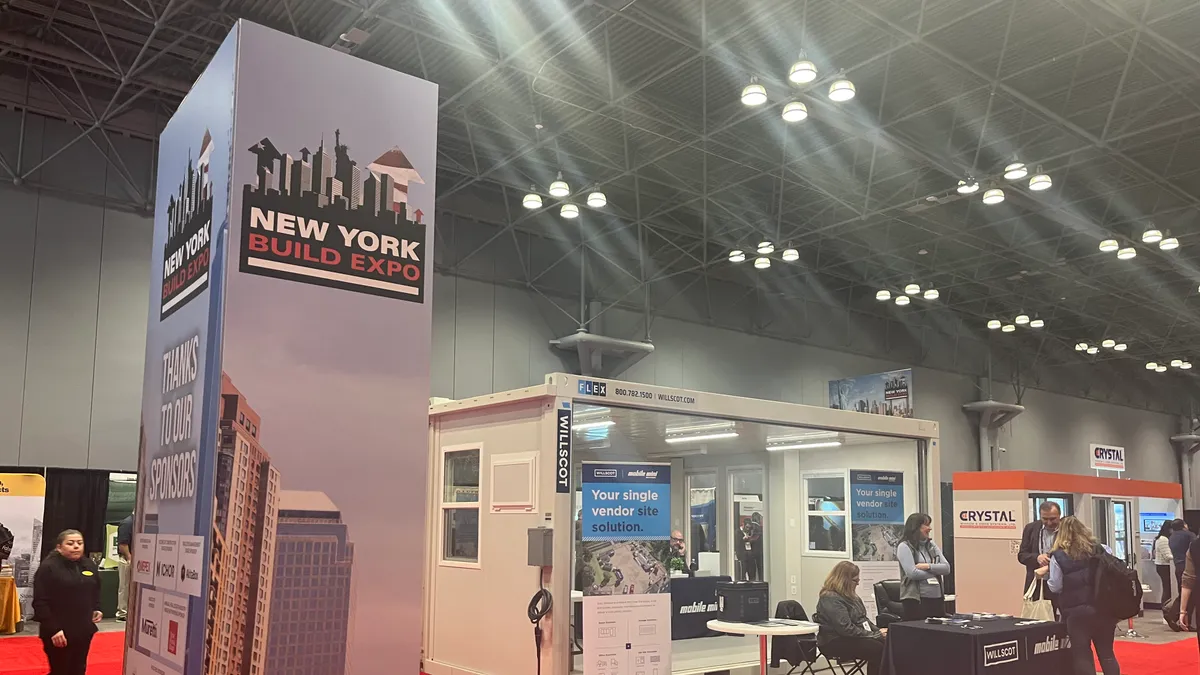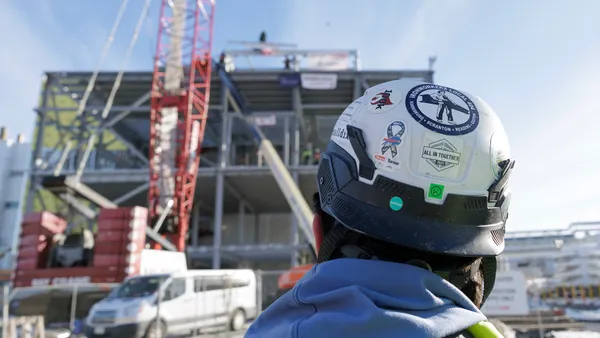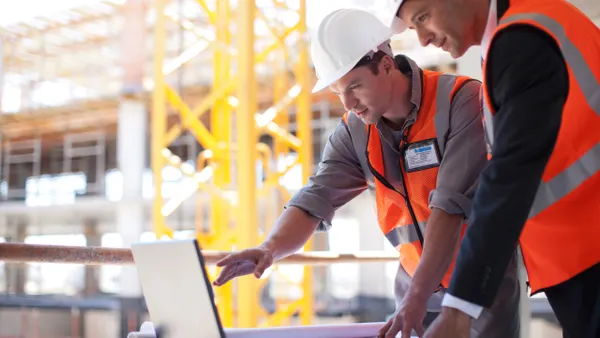Contech adoption continues to surge in the construction industry, with a specific focus on drones and automation, according to panelists at the 2023 New York Build Conference.
For example, proposed legislation could soon permit drones to assist the Department of Buildings in facade inspections, said Edward Kostakis, CEO of AeroSpect, a New York City-based drone service provider, during the panel session.
According to a report from the office of Manhattan Borough President Mark Levine, drones are currently not allowed to fly freely in the city, and may only land or take off in certain select zones. That means humans must conduct these facade inspections in the city. Local Law 11 compliance requires buildings taller than six stories to have their facades inspected and repaired every five years.
“Operating drones in New York City is very different from operating drones in the rest of the country,” said Kostakis. “There’s so many high rises. If we wanted to do some sort of facade inspection, generally if you have a building a little more spaced, you’d have a much easier time to do that, at least for now. We’re working on some new technology to be able to develop that into a more operable situation.”
Introduction 452, a bill sponsored by New York City Council Member Keith Powers, would allow for these drone technologies to be used by the construction industry. Adoption of the technology would greatly improve the speed and efficiency of conducting facade inspections, said Kostakis. Analysts project the North American facade system market to climb to $49.8 billion by 2028 from $38.3 billion in 2021, according to a report from Business Market Insights.
“The government traditionally lags on adopting technology,” said Liz Van Dyke, head of public sector at JLL Technologies, a real estate technology and services provider. “I would argue that we’re starting to see a drastic shift in adoption of things like drones and sensors. Things that have traditionally not been accepted in this industry are now very much top of mind.”
Contech adoption surges despite economic concerns
Outside of drone technology, Van Dyke added that JLL Spark, the corporate investment arm of JLL, is analyzing everything from how the company collects data to how it uses that data to inform decision making. The VC arm has invested more than $380 million in about 40 construction technology startups, with a focus on solutions in sustainability and energy consumption, according to Van Dyke.
“I think what’s important is creating the appropriate ability to bring all those data sources together,” said Van Dyke. “Generally speaking, there’s a lot of valuable data that already exists that just needs to be combined — to see the full picture of that effect.”
Despite economic pressures and overall tightening in the market, Van Dyke points out there remains an appetite for technology adoption in the market.
“Where we used to have lots of security concerns, lots of challenges for adoption of unproven technology, we are starting to see the value of the data outweigh some of those older restrictions,” said Van Dyke. “We are finding ways to get around them to make it more comfortable and to increase adoption.”
Some of the technologies JLL Spark has invested in include a generative construction simulator that helps contractors explore numerous potential ways to build a project, a platform that digitizes the renovation process, decarbonization tools and other forms of automation and sensor tools.
“That is leading to higher adoption,” said Van Dyke. “In the next 12 months, we’re going to see some really exciting strategies.”















